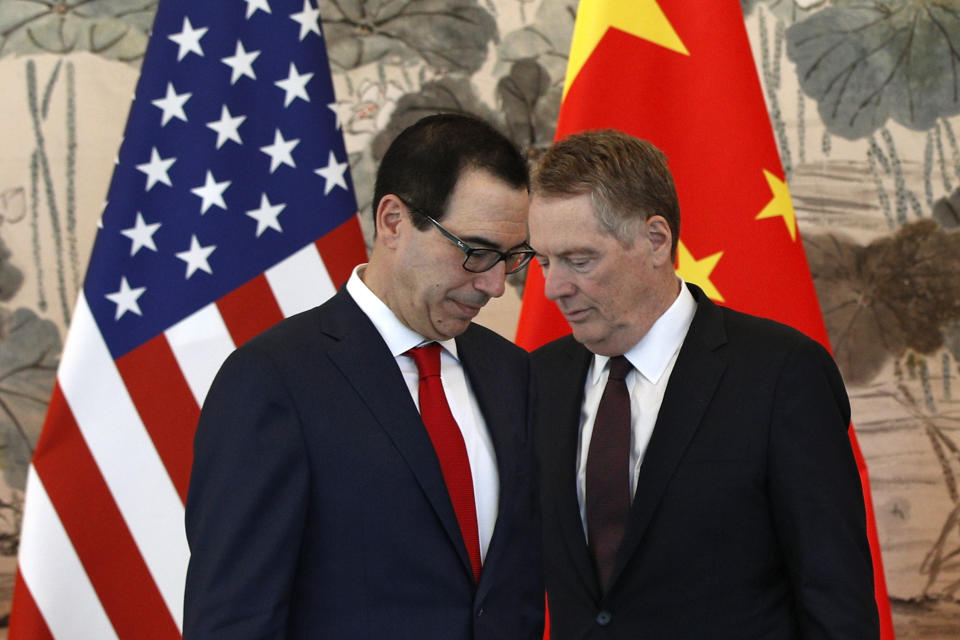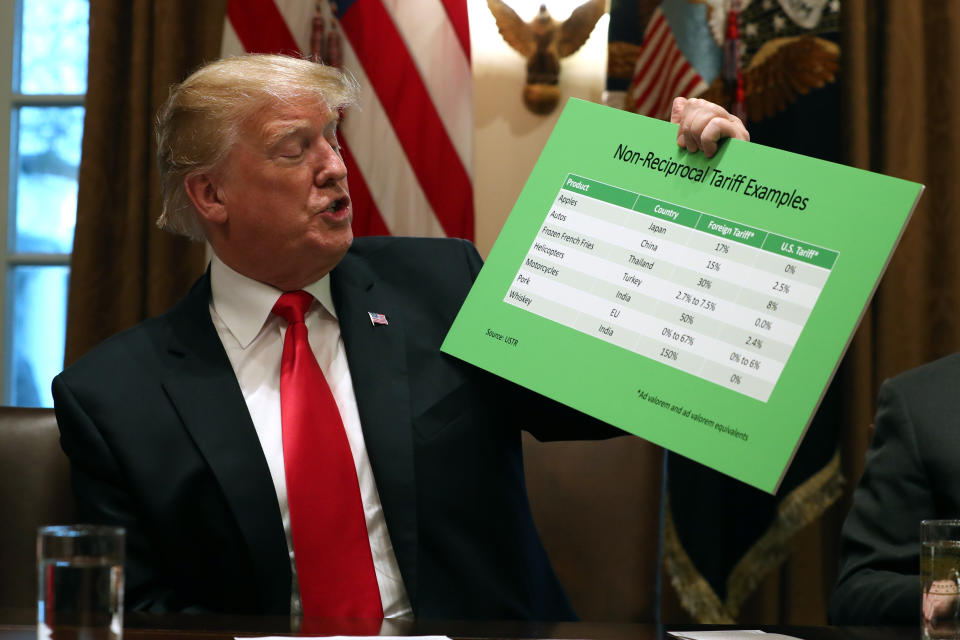Trump is losing his trade war with China
For weeks, the Trump administration has been saying trade talks with China are “productive.”
That ruse is over.
President Donald Trump now says he’ll raise tariffs on $200 billion worth of Chinese imports from the 10% levies he imposed last year, to 25%, effective May 10. This move comes because China is moving “too slowly” in trade talks, Trump tweeted.
That much seems apparent. Trump initially said he’d raise tariffs by March 1, if there was no deal with China. That deadline came and went with no deal, and no additional tariffs. So, Trump is now doing what he said he’d do all along, just a couple months later than expected.
It’s an ominous development likely to rattle financial markets. Escalating tariffs raise costs, with no corresponding gain. But more than that, Trump’s blunt-force use of tariffs may indicate that China is not playing along after all in the drawn-out trade talks, and may feel it has the stronger hand. And China may be right about that.

Trump has never said exactly what his negotiators are demanding of China, but he has complained loudly about the steep U.S. trade deficit with China. That’s something China can address, by directing state-owned firms to buy more U.S. exports, such as energy and food. That could run afoul of global trade rules, but China could still agree, let Trump claim a win, and worry about the details later.
China will be more reluctant to give up government control of industry, stop pirating foreign technology and let U.S. firms operate more freely in the Chinese market. Unlike Western democracies, China aggressively controls sectors of the economy it considers strategically important, and Trump is essentially telling them to stop it. Trade experts insist China won’t do that, and will fight Trump measure-for-measure, if necessary.
Trump tariffs are punishing Americans
The problem for Trump is that to punish China, he must punish Americans first. He’s already doing that with the tariffs he imposed last year. Economist have pegged the cost of Trump’s tariffs at $3 billion per month — and those are new taxes paid by Americans, not by foreigners, as Trump keeps mistakenly insisting.
Trump’s tariffs have also led to retaliatory tariffs on U.S. exports to China, Europe, Canada, Mexico and other countries, which are hurting American farmers and some companies. Trump may think the U.S. economy is strong enough to absorb a few billion dollars in tariffs — but that’s not OK with the people bearing the cost, or their political representatives.
Republican Sen. Charles Grassley of Iowa, who chairs the Senate Finance Committee, said recently that Trump must remove all tariffs in order for Congress to ratify the new trade deal Trump negotiated with China and Mexico. Grassley wasn’t addressing China, but the Chinese surely noticed that Trump’s own political party is resisting him on tariffs. Republicans have also introduced legislation that would make it harder to impose tariffs for national-security reasons, a tactic Trump used last year for steel and aluminum imports and has threatened to use for imported automobiles.
Trump faces many problems domestically, including those stemming from the Mueller report and House investigations that will intensify through the rest of his term. His approval rating is a weak 43%, despite a solid economy and booming job market. If China is, in fact, slow-rolling Trump on trade, it makes sense: Trump’s trade policy is unpopular in his own country and his own party, so why make a deal if Trump’s support at home is on the verge of crumbling?

With the higher tariffs, Trump has now called China’s bluff, and China may make just enough concessions to get to a deal. But China is also prepared for the worst Trump can offer. And it can get worse. Trump says that if there’s no deal, he’ll soon impose tariffs on another huge tranche of Chinese imports. So far, the Trump tariffs have mostly gone on industrial goods used as components in finished products, which means manufacturers have to deal with them, but consumers don’t really notice.
If Trump hits the other products with tariffs, however, that will include lots of consumer goods such as toys, electronics, furniture and clothing. The tariffs would show up in higher prices, and consumers probably would notice. So, the Chinese might decide to let Trump go ahead and raise prices on Americans, and maybe impose more retaliatory tariffs on U.S. exports that hurt American farmers, while letting Trump fight it out with his fellow Republicans and with voters getting hurt by his trade policies.
Trump famously said trade wars are “easy to win.” But he could lose this one at home, and his foreign adversary is using that against him.
Confidential tip line: rickjnewman@yahoo.com. Encrypted communication available. Click here to get Rick’s stories by email.
Read more:
Why Medicare for all is doomed
The stock market liked these presidents better than Trump
Joe Biden’s economic views need a major update
The Mueller report thoroughly impugns Trump
Winter is coming for big business
3 problems with Elizabeth Warren’s wealth tax
Rick Newman is the author of four books, including “Rebounders: How Winners Pivot from Setback to Success.” Follow him on Twitter: @rickjnewman

 Yahoo Finance
Yahoo Finance 
